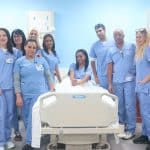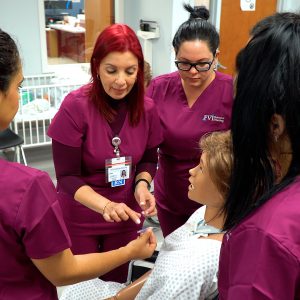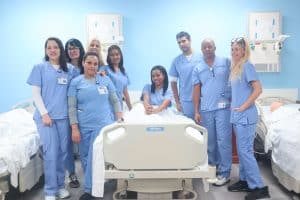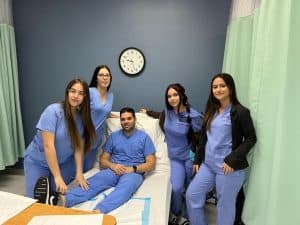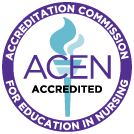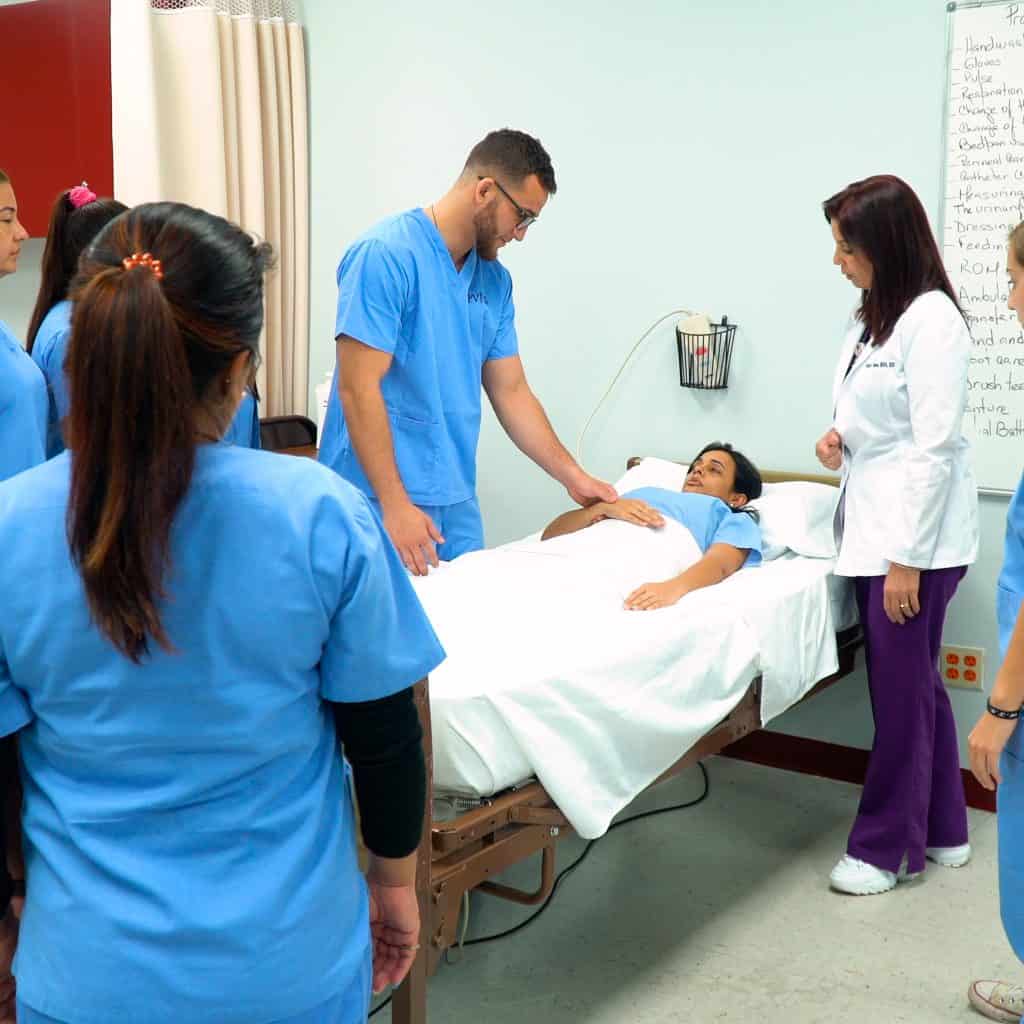
Practical nursing students must gain hands-on experience and knowledge before sitting for their licensing exam and treating patients. FVI School of Nursing & Technology prepares them in three ways: classroom learning, skills and simulation labs, and clinical experience.
FVI clinical rotations help students build confidence and gain the practical skills necessary to transition from academic learning to professional practice after passing the NCLEX-PN. Here, Director of Nursing Dr. Maria Walwema answers common questions about clinicals at FVI’s practical nursing program in Miami, Florida.
Where Do Clinicals Take Place?
LPNs are highly versatile healthcare professionals. Once licensed, they can work in many care settings, including hospitals, long-term care facilities, rehabilitation centers, and outpatient clinics.
“Since our founding, FVI has created a solid healthcare network which allows us to place students in nearby, high-quality clinical sites where they work alongside professional providers in real-world settings.”
Dr. Walwema, Director of Nursing, describes FVI’s partnerships with local medical facilities
Rotations not only give you an idea of what to expect as a working nurse. They also expose practical nursing students to various healthcare environments and specialties to help them decide where to work after passing the NCLEX. For example, moving between different hospital departments can spark a passion for working with children, seniors, or patients with urgent medical needs in the ER.
What Will I Learn in Clinical Rotations?
During the clinical section of practical nursing school, it’s time to apply what you learned in the classroom to real people in real healthcare settings.
“Clinicals for PN students are the same for the students in the Associate Degree program.To become an LPN, you must be educated in areas such as the fundamentals of nursing, surgical assistance, pharmacology, pediatrics, maternity care, and mental health.”
Dr. Walwema, Director of Nursing
- Nursing fundamentals – This includes essential patient care skills such as hygiene, safety, and communication.
- Surgical assistance – LPNs assist with pre- and post-operative care, including monitoring patients and supporting the surgical team.
- Pharmacology – PN students learn how to safely administer medications, understand dosages, and monitor patients for reactions and side effects.
- Pediatrics – Special training is provided to care for children, focusing on growth, development, and communicating with young patients and their families.
- Maternity care – LPNs assist with pregnancy, labor, postpartum care, and newborn care, supporting both mother and infant.
- Mental health – Training includes recognizing mental health conditions and collaborating with mental health professionals to provide comprehensive care.
“Mental health training is particularly important for practical nurses and is emphasized in our program. It’s crucial because a lot of LPNs are dealing with patients with emotional, psychological, and cognitive decline.”
Dr. Walwema, Director of Nursing
While caring for patients with dementia, Alzheimer’s, or other mental health issues can be challenging, our program equips practical nursing students to handle these complex situations with compassion and expertise.
Will I Be Prepared to Work With Patients?
Yes. FVI strives to make your transition from the classroom to the clinic as smooth as possible. Early rotations focus heavily on education and observation. Initially, you will primarily shadow other nurses, watching them perform tasks with actual patients.
As you progress, you will be assigned patients while continuing to work under the guidance of a nurse supervisor. Feeling a bit nervous when you start working directly with patients is okay. With each shift, you should begin to feel more confident. As you gain more experience, you will take on more responsibilities based on your comfort and skill level.
Clinicals Prepare PN Students for the NCLEX and the Workforce
“Clinicals are important because, as the title ‘Practical Nursing’ implies, it involves a wide range of nursing skills that can only be mastered in real-world settings.”
As Dr. Walwema says,
At FVI’s practical nursing program in Florida, students work directly with patients under the supervision of experienced nurses and instructors. Clinicals are designed to help future LPNs develop practical skills, gain confidence, and become familiar with various aspects of patient care. To learn more about the program or start the admissions process, call, visit, or apply online. FVI also offers associate nursing programs in Miami and Miramar for those seeking a career as an RN in Florida.

